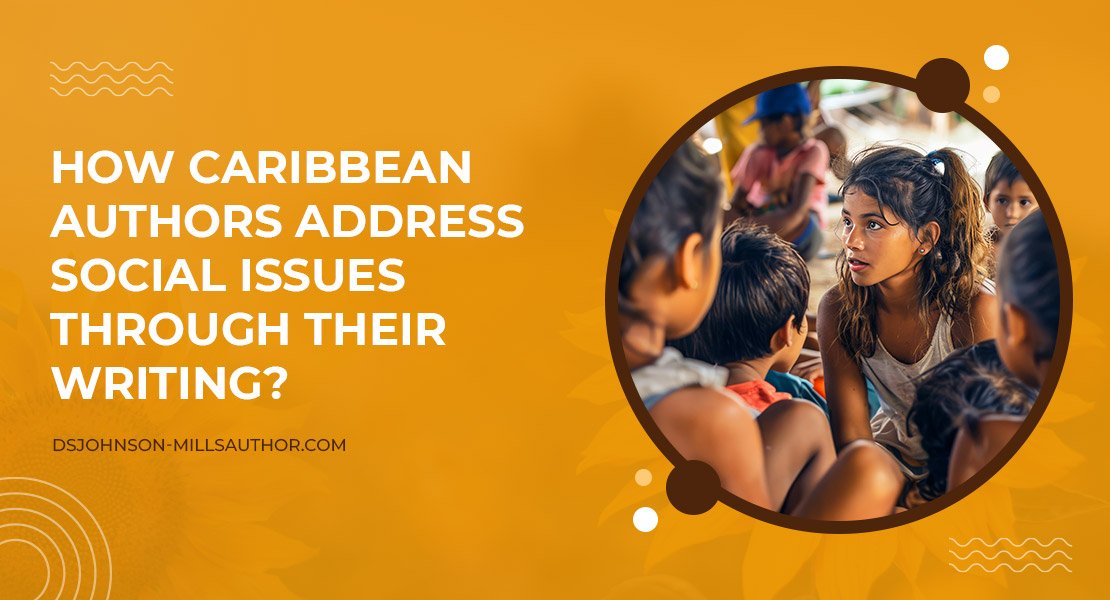The Caribbean literary scene stands as a vibrant tapestry of voices that delve into the complexities of the region’s social and cultural dynamics.
Literature has served as a powerful medium for social commentary, enabling authors to articulate the struggles and triumphs of their communities.
This blog post explores how Caribbean authors use their writing to address pressing social issues, providing both insight and inspiration to readers.
Historical Context and Social Issues
The Caribbean’s historical landscape is a tapestry of complex social and cultural dynamics, shaped significantly by its colonial past.
The arrival of European colonizers in the late 15th century marked the beginning of a transformative era, with the Caribbean becoming a focal point of colonial ambitions. This era saw a significant disruption in the lives of indigenous populations, as massive demographic shifts occurred due to disease, warfare, and forced labour.
The introduction of enslaved Africans, shipped across the Atlantic to work on plantations, added another layer to the region’s intricate social fabric. This period of colonial exploitation laid the groundwork for a cultural melting pot, characterized by a fusion of African, European, and indigenous influences.
These historical elements have profoundly impacted Caribbean literature, with authors often addressing themes of identity, resistance, and resilience.
The legacy of colonialism, coupled with ongoing issues of migration and economic dependency, continues to resonate in contemporary Caribbean narratives, offering insight into the enduring struggles and triumphs of the region’s people.
Through their works, Caribbean authors provide a voice to these historical and social issues, bridging past and present in a bid to foster understanding and change.
Colonialism and Post-Colonial Struggles
The Caribbean’s colonial history has left a profound impact on its literature, shaping narratives that address the enduring effects of colonial rule and the struggles that followed independence.
European powers, mainly the British, French, and Dutch, established colonies across the Caribbean, exploiting the region’s resources and people through systems like plantation slavery. These colonial systems not only transformed the demographic makeup but also left lasting social hierarchies.
The literature of the Caribbean often reflects these themes, with authors exploring the legacies of oppression and resistance.
Writers like V.S. Naipaul and Derek Walcott have depicted the societal scars left by colonialism, capturing the complex identities forged in the crucible of colonial rule.
Post-colonial struggles, such as the fight for political and cultural autonomy, also feature prominently in Caribbean literature, highlighting the ongoing quest for self-definition and justice.
Exploration of Identity and Cultural Heritage
The Caribbean’s cultural landscape is a mosaic of influences from its indigenous peoples, European colonizers, enslaved Africans, and later, Asian and Middle Eastern immigrants. This blend is evident in the region’s diverse languages, cuisines, and religious practices, all echoing centuries of cultural amalgamation.
Derek Walcott and Edwidge Danticat explore these themes, capturing the ongoing quest for identity amidst this dynamic cultural backdrop. Their narratives often highlight the struggles and resilience of Caribbean people, portraying how historical interactions have shaped modern identities. This exploration of cultural heritage in literature provides a deep understanding of the Caribbean’s unique position in the world, offering readers a glimpse into the intricate interplay of past and present that defines Caribbean society today.
Through these literary works, the region’s authors not only celebrate their rich traditions but also engage in the crucial dialogue of self-definition and cultural pride.
Migration and Diaspora Experiences
The Caribbean diaspora plays a pivotal role in shaping both the identity and literary expression of the region. With nearly as many Caribbean nationals living abroad as in their home countries, the diaspora reflects a significant migration pattern that has influenced cultural and social dynamics.
This widespread movement has enriched Caribbean literature, where themes of migration, belonging, and identity are prominently explored.
Authors like DS Johnson Mills and George Lamming use their works to navigate the complexities of living between two worlds, often highlighting the tension between preserving cultural heritage and adapting to new environments.
Literature from the Caribbean diaspora serves as a bridge, connecting those abroad with their roots while also providing insight into the challenges and triumphs of migrant life. This body of work not only keeps the cultural fabric of the Caribbean alive but also underscores the resilience and adaptability of its people, revealing the powerful impact of migration on the collective consciousness.
Through these narratives, Caribbean literature continues to evolve, reflecting a rich tapestry of experiences that resonate both locally and globally.
Gender and Feminist Perspectives
Caribbean literature provides a platform for exploring gender and feminist perspectives, with women authors at the forefront of this discourse. Jamaica Kincaid and Edwidge Danticat have skilfully woven narratives that address the complexities of gender roles and women’s rights in Caribbean society. Their works often highlight the resilience of women who navigate cultural expectations and socio-economic challenges.
Recent data underscores the importance of these narratives, revealing that women in the Caribbean hold about 60% of labour force participation in some countries, while in others, the rate is closer to 40%.
Caribbean women disproportionately face the impacts of natural hazards, which can disrupt their businesses and livelihoods. These statistics illuminate the ongoing gender disparities that drive the need for literary exploration and advocacy.
Through their powerful storytelling, Caribbean women authors not only challenge traditional norms but also inspire a broader conversation about empowerment and equality, advocating for a society where gender does not dictate one’s opportunities or worth.
If you would like to read some of the great author works, then please check out our list of best caribbean authors.
Conclusion
With each story, a mirror is held up, not just to the Caribbean experience but to the complexities of identity, belonging, and justice in a global context. These literary voices challenge us to reflect on the invisible threads that bind diverse cultures and histories, urging us toward empathy and deeper reflection.
In doing so, Caribbean literature serves a critical role in expanding the global conversation about who we are and who we can become, fostering a collective journey toward greater understanding and unity.





